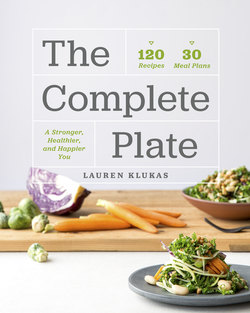Читать книгу The Complete Plate - Lauren Klukas - Страница 21
На сайте Литреса книга снята с продажи.
Оглавление21
important for the heart to contract prop-erly. In a different capacity, vitamins B6, B9, and B12 are involved in clearing homocysteine (a toxic by-product of bodily functions) from the blood, decreasing inflammation in blood vessels and consequently lowering the risk of cardio-vascular disease.
We often overlook how nutrients other than iron impact the function of our blood, but there are many nutrients needed for blood to work its best. Vitamin A and B vitamins are needed to incorporate iron into the red blood cells, and vitamin C is a secondary helper by promoting iron absorption from plant sources. Another important life-necessitating function is blood clotting, in which vitamin K plays a crucial role.
Immune function is a hot topic, both in terms of protecting the body from infectious diseases, but also protecting the body from autoimmune diseases such as type 1 diabetes and celiac disease. Vitamin A, vitamin D, B vitamins, and iron are all involved in immune function. A different, but still relative, mechanism is preventing oxidation, which causes damage and inflammation to the body. Riboflavin (vitamin B2), vitamin C, and vitamin E are powerful antioxidants, protecting our cells from oxidation.
Now, you may be wondering why there is a recommended intake for sodium when a lot of attention has been paid on how it negatively impacts our health (especially blood pressure). But the truth is, our body needs sodium for life-sustaining processes,
If you look at the nutrient analysis in this book (page 290), the vitamin D level is frequently low. Our body produces vitamin D from sunlight exposure, but if you live at high latitudes (like Canada!), spend most of your day indoors, protect yourself from sunlight when you are outside, or a combination of all three, your body is likely not producing adequate vitamin D. Milk and some brands of milk alternatives (for example, almond or soy milk) have been fortified with vitamin D. Fish with small bones are also a significant source of dietary vitamin D. Vitamin D supplementation is generally recommended to help meet our recommended intake. Otherwise, if you are eating a balanced diet, most people do not need additional vitamin or mineral supplements. Check with your health care provider prior to starting any vitaminor mineral supplementation.13
vitamin d
